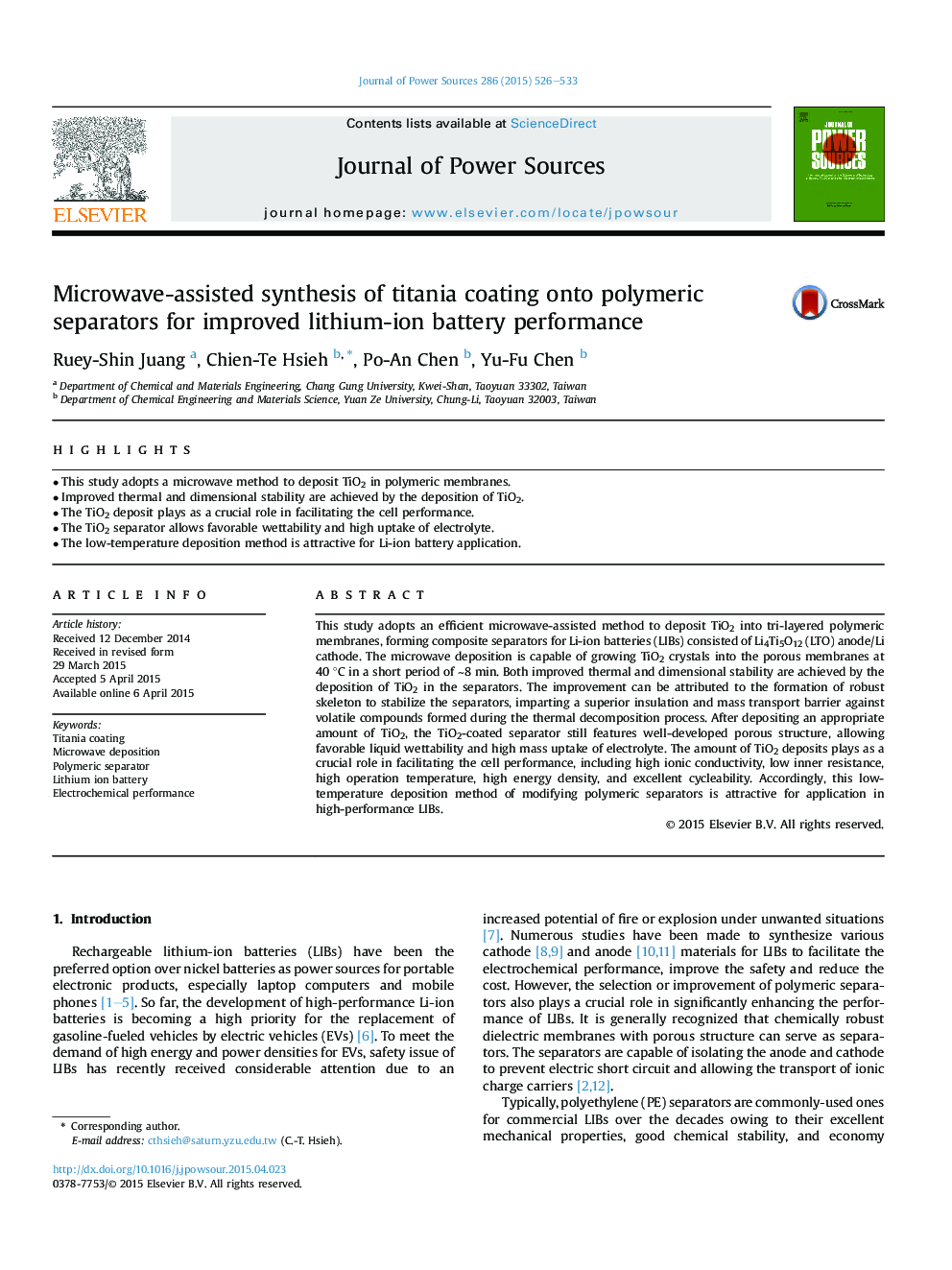| Article ID | Journal | Published Year | Pages | File Type |
|---|---|---|---|---|
| 7732357 | Journal of Power Sources | 2015 | 8 Pages |
Abstract
This study adopts an efficient microwave-assisted method to deposit TiO2 into tri-layered polymeric membranes, forming composite separators for Li-ion batteries (LIBs) consisted of Li4Ti5O12 (LTO) anode/Li cathode. The microwave deposition is capable of growing TiO2 crystals into the porous membranes at 40 °C in a short period of â¼8 min. Both improved thermal and dimensional stability are achieved by the deposition of TiO2 in the separators. The improvement can be attributed to the formation of robust skeleton to stabilize the separators, imparting a superior insulation and mass transport barrier against volatile compounds formed during the thermal decomposition process. After depositing an appropriate amount of TiO2, the TiO2-coated separator still features well-developed porous structure, allowing favorable liquid wettability and high mass uptake of electrolyte. The amount of TiO2 deposits plays as a crucial role in facilitating the cell performance, including high ionic conductivity, low inner resistance, high operation temperature, high energy density, and excellent cycleability. Accordingly, this low-temperature deposition method of modifying polymeric separators is attractive for application in high-performance LIBs.
Related Topics
Physical Sciences and Engineering
Chemistry
Electrochemistry
Authors
Ruey-Shin Juang, Chien-Te Hsieh, Po-An Chen, Yu-Fu Chen,
